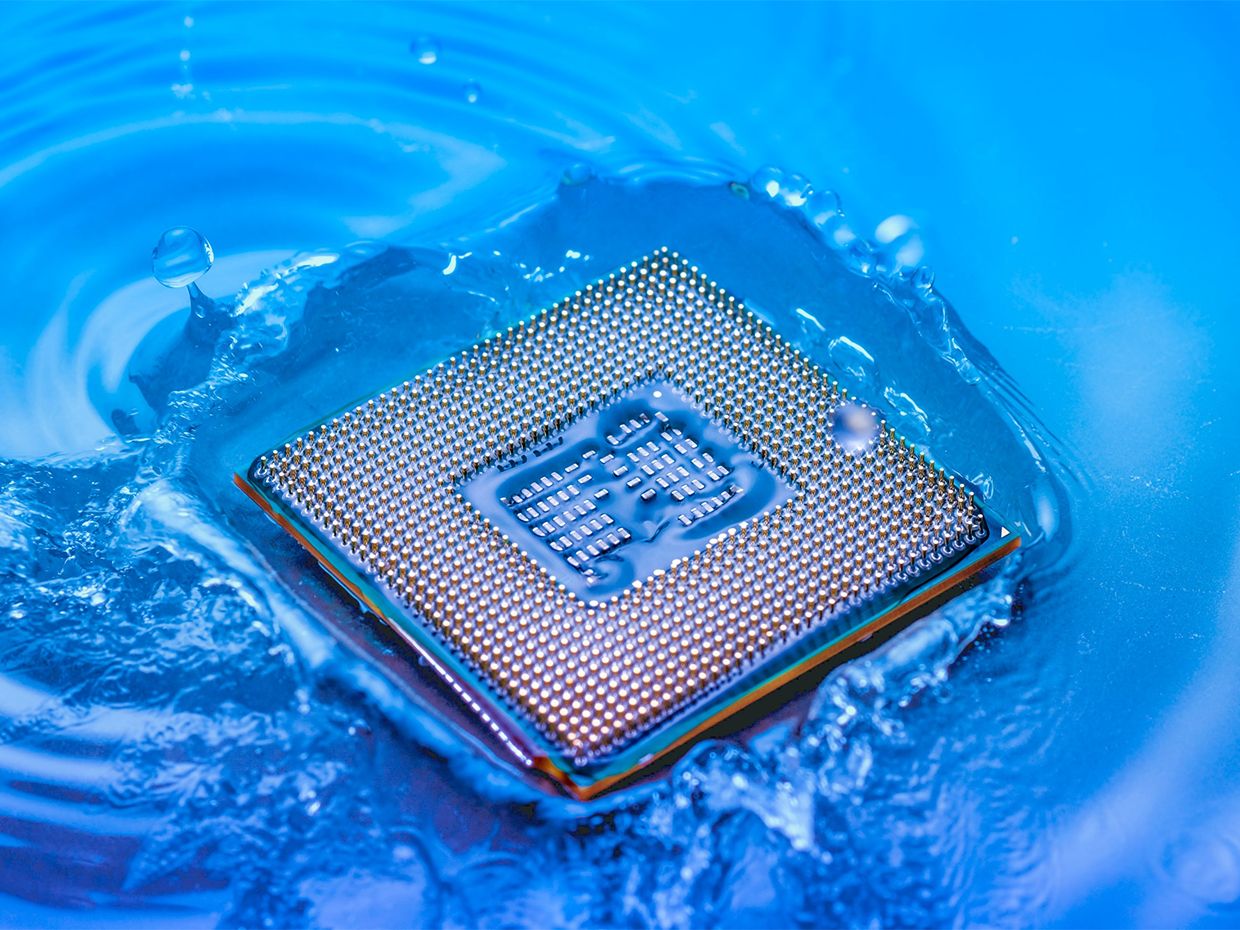Startup’s Innovation Quickly Cools Down Mobile Devices
 Photo: JETCOOL Technologies Inc Jetcool's heat sink can be embedded within the substrate, be part of the baseplate, or be a modular add-on.
Photo: JETCOOL Technologies Inc Jetcool's heat sink can be embedded within the substrate, be part of the baseplate, or be a modular add-on. THE INSTITUTEAs electronics get smaller and more powerful, they are generating more heat. One challenge for manufacturers is finding a way to cool down their creations without affecting performance.
Current methods to prevent overheating include fans, aluminum heat sinks, and liquid-cooled cold plates. A heat sink has a thermal conductor to disperse the heat. As devices get smaller and hotter, their heat sinks are getting larger.
Mechanical engineer Bernie Malouin, founder of the startup Jetcool Technologies, says making bigger heat spreaders is a backward approach. His team came up with a different way: a technology they call microconvective cooling, which uses small jets of fluid. Jetcool's heat sink can be embedded within the substrate, be part of the baseplate, or be a modular add-on.
Jetcool, based in Littleton, Mass., was named Next Top Startup at a competition held during the IEEE International Microwave Symposium (IMS) in June. The company also won the event's Audience Choice Award.
"Why develop smaller and smaller devices just to saddle them with larger and larger heat sinks?" Malouin says. "It just didn't make sense to me. Jetcool uses small heat sinks that are essentially the same size as the device itself. On top of that, our approach provides 10 times better cooling than other methods such as microchannels, cold plates, or air cooling."
MINIATURE JETSInstead of spreading the heat, Jetcool's small jets of high-velocity fluid are aimed directly at the surface to remove the heat right where it's generated. The jets are built into the silicon substrate, integrating cooling into the processor chip. Its solution integrates seamlessly with almost all of today's liquid-cooling infrastructure, requiring only industry-standard pressures and flow rates.
What's more, Malouin says, Jetcool heat sinks are lightweight, don't use thermal epoxies or pastes, and eliminate the need for metal heat sinks. The miniature cooling modules can be added during chip fabrication or to an existing component at the packaging stage, he says.
Jetcool's on-chip microconvective cooling could be used in the motor drives of electric vehicle power systems, the laser diodes that are part of defense systems, and the performance processors powering data centers.
Several prototypes are being piloted, and Malouin said he expects to start selling products next year.
MINIATURIZATION MOVEMENTMalouin has nine U.S. patent applications pending. Some of his technology has been licensed from his former employer, MIT Lincoln Laboratory, in Lexington, Mass., where for eight years he worked in its mechanical engineering and thermal engineering group. That's where he and Jetcool's technology director, Jordan Mizerak, first met and came up with their idea, which was based on technology the team had been perfecting for five years.
"At Lincoln Laboratory, we observed this trend in miniaturization that was happening all around us," Malouin says. "Innovations were being built upon more powerful devices in smaller and smaller packages. We saw power density was really going through the roof, and that's the problem we worked to solve. The company is very young, but our technology has actually been fairly well proven."
The startup is currently self-funded, but Malouin envisions a seed round early next year to expand the pilot project. In addition to Malouin and Mizerak, there's only one other employee, but Jetcool is looking to hire people who "want to help reshape the future of electronics cooling," Malouin says.
HIGH-VALUE RECOGNITIONMalouin says the IMS provided a great forum for him to network with other startups, get feedback about his product, and better understand customers' needs. Just as important, he adds, was that IEEE and the IMS brought small and large companies under one roof.
"Large organizations provide a fairly unique vector to turn new technologies into real products," he says. "I think building relationships between startups and large companies is really key, and that's something that IEEE and the IMS do very well.
"Being named the Next Top Startup has brought a lot of recognition to us and our technology. From our viewpoint, the competition was a tremendous success and something of high value to the startup community. We hope it continues in the future, because the event was well received by everyone."